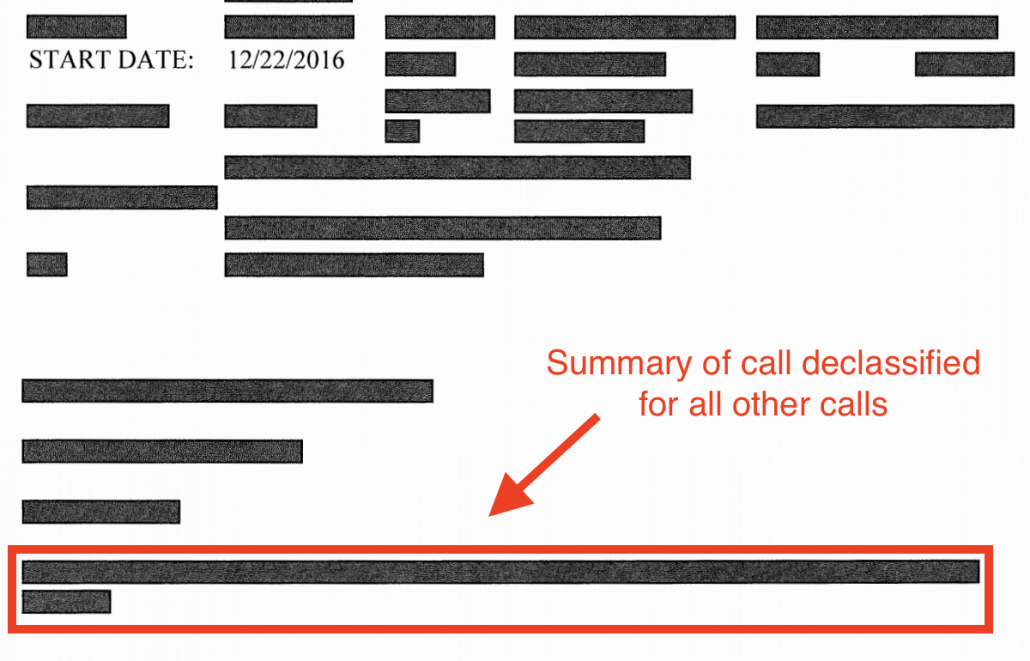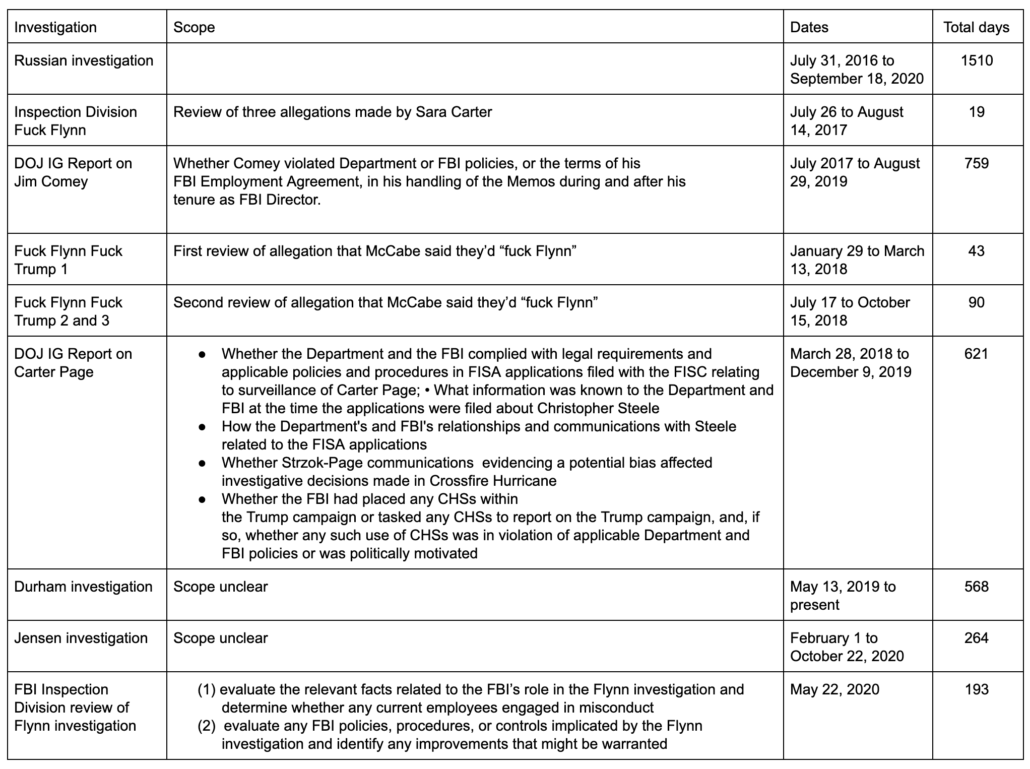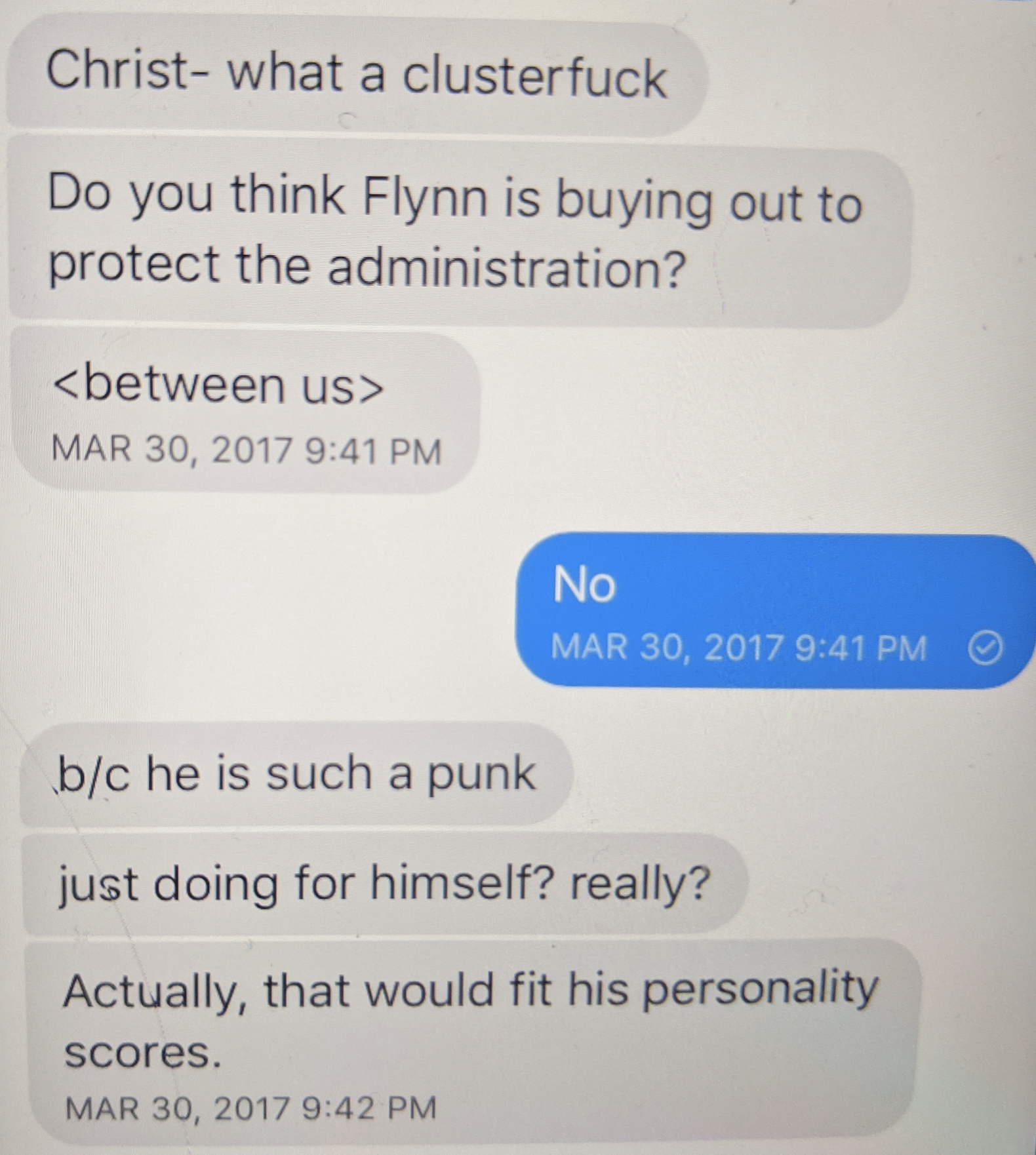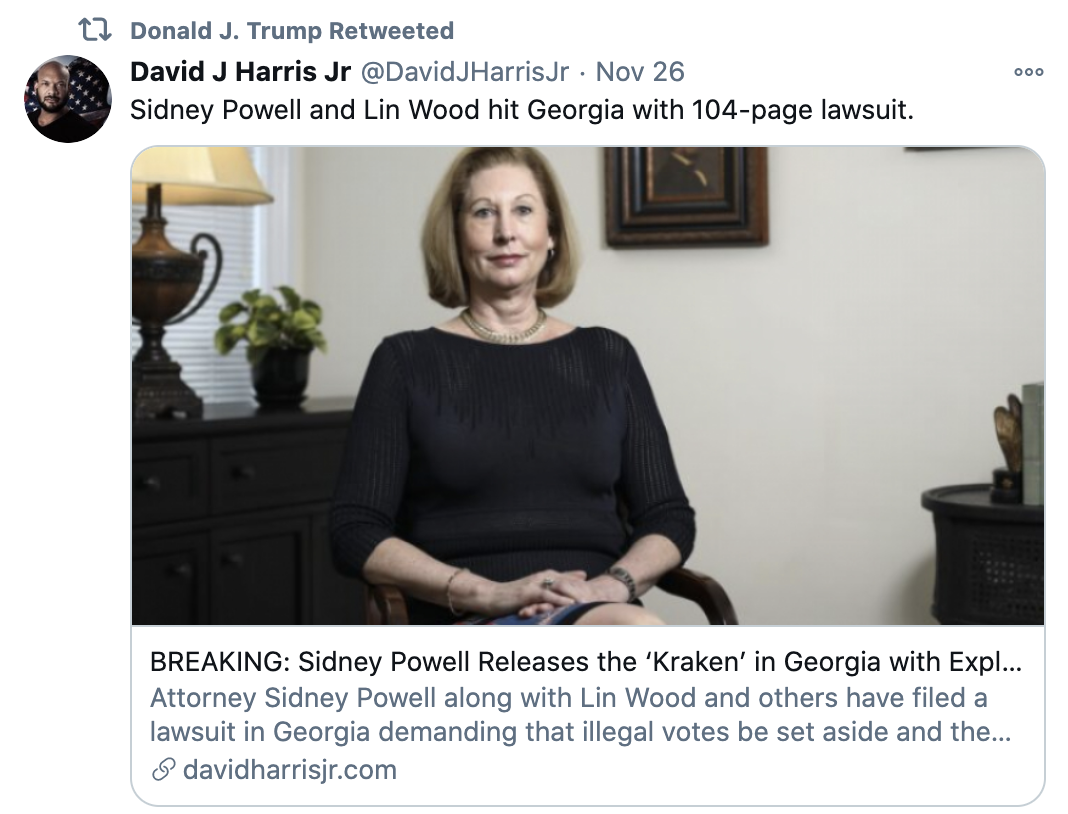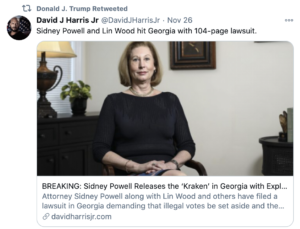Failsons and Kraken Conspiracies: Three Mike Flynn Hypotheticals Trump May Have Tried to Preemptively Pardon
In a hearing in the BuzzFeed FOIA case today, Judge Reggie Walton (who always likes to chat about his conversations with his colleagues in the Prettyman judge’s dining room), said the Flynn pardon might be too broad.
U.S. District Judge Reggie Walton said at a hearing Friday that he doesn’t think U.S. District Judge Emmet Sullivan, his colleague presiding over the Flynn case, “has a lot of options in reference to what he does” after the pardon was granted, “unless he takes the position that the wording of the pardon is too broad, in that it provides protections beyond the date of the pardon.”
“I don’t know what impact that would have, what decision he would make, if he makes that determination that the pardon of Mr. Flynn is for a period that the law does not permit. I don’t know if that’s correct or not,” the judge continued. “Theoretically, the decision could be reached because the wording in the pardon seems to be very, very broad. It could be construed, I think, as extending protections against criminal prosecutions after the date the pardon was issued.”
“I don’t know if Judge Sullivan will make that determination or not,” Walton added.
Walton seemed to be suggesting that Sullivan might have a way to hold Flynn accountable in the future, unless the pardon as written is too broad.
That has set off a debate among Legal Twitter arguing what the pardon should mean, not what it does say.
To be sure, the first part of the Flynn pardon is undeniably valid. It pardons Flynn [I’ve added the numbers; which are different from the less helpful ones DOJ uses in their motion],
(1) for the charge of making false statements to Federal investigators, in violation of Section 1001, Title 18, United States Code, as charged in the information filed under docket number 1:17-CR-00232-EGS in the United States District Court for the District of Columbia; (2) for any and all possible offenses set forth in the Information and Statement of Offense filed under that docket number (3) or that might arise, or be charged, claimed, or asserted, in connection with the proceedings under that docket number
This is already too broad, for one reason I’ll get into. But on its face, that language pardons:
- The false statements as laid out in the criminal information
- The crime of being an undisclosed foreign agent for Turkey, lying to DOJ about it, and conspiring to lie about it
- The lies Flynn told Judge Emmet Sullivan in a bid to get out of his prior guilty allocutions
Those are, incidentally, the crimes laid out in the government’s motion to dismiss the case as moot.
The pardon not only encompasses the Section 1001 charge that is the subject of the government’s pending motion to dismiss (Doc. 198), but also any possible future perjury or contempt charge in connection with General Flynn’s sworn statements and any other possible future charge that this Court or the court-appointed amicus has suggested might somehow keep this criminal case alive over the government’s objection (e.g., a charge under the Foreign Agents Registration Act, Section 618(a), Title 22, United States Code, arising out of the facts set forth in the Statement of Offense).
There is nothing controversial about this part of the pardon (aside from the rank corruption of it). It is clear that the pardon is intended to and does cover those crimes that Flynn committed.
But the pardon goes beyond pardoning Flynn for those crimes. It also pardons Flynn for,
any and all possible offenses within the investigatory authority or jurisdiction of the Special Counsel appointed on May 17, 2017, including the initial Appointment Order No. 3915-2017 and subsequent memoranda regarding the Special Counsel’s investigatory authority; and any and all possible offenses arising out of facts and circumstances known to, identified by, or in any manner related to the investigation of the Special Counsel, including, but not limited to, any grand jury proceedings in the United States District Court for the District of Columbia or the United States District Court for the Eastern District of Virginia.
As I noted, it purports to pardon Flynn for any crime that arises out of “facts … known to … the investigation of the Special Counsel,” any crime related to it, or anything arising from the grand juries (not time denominated or named) that investigated Flynn.
I think that is an attempt to stave off any crimes based off information collected as part of this investigation, even if the crime happens in the future. Here are three not-at-all unlikely scenarios:
Flynn reneges on his sworn testimony in a retrial against Bijan Kian in which Mike Flynn Jr also gets charged
Flynn’s partner, Bijan Kian, was found guilty of conspiring to lie about working for Turkey with Flynn in 2016. But then the judge in the case, Anthony Trenga, overturned that verdict. The government is appealing his order. One possible outcome of that appeal is that the government will retry Kian. With Flynn’s plea deal off the table, the government would be free to include Flynn Jr in any potential retrial.
Flynn testified to an EDVA grand jury, under oath, that he knew that he (and so by association, his son and Kian) were secretly working for the government of Turkey in 2016. Prosecutors made a last-ditch attempt to make Flynn a co-conspirator in Kian’s last trial. In a superseding indictment they could make him an unindicted co-conspirator (which would make his communications admissible without his testimony). But it would be very useful to have his testimony as well.
Normally, prosecutors could force a witness to hew to his grand jury testimony on penalty of perjury. In this case, however, Trump has purported to pardon Flynn for anything pertaining to that grand jury. If Flynn lied at trial, could he be charged?
The government discovers further evidence of Flynn’s work as a foreign agent by tying Mueller evidence to evidence withheld
In both the case of Trump outreach to Russia and the case of Flynn’s work with Ekim Alptekin, there’s reason to believe that Flynn and — in the former case — the Trump campaign succeeded in withholding information for the entirety of the Mueller investigation but which DOJ discovered afterwards (I won’t get into the details of what that is here — again, I’ll say more in January).
Flynn’s lies about this information to Mueller or EDVA prosecutors clearly are covered by the pardon.
But if the information reflected an ongoing relationship — existing even now! — with either Russia or Turkey, it would impose registration requirements on Flynn. The government might argue, however, that because these relationships began prior to the period of the Mueller investigation and might never have been discovered if not for the warrants and subpoenas used in the Mueller or EDVA investigations, they are therefore related and Flynn’s prospective failure to register is covered by his pardon. I’m suggesting that the government seems to want to set up a claim that anything that stems from the Mueller investigation would be fruit of a poisonous tree and immune from prosecution.
An ongoing Kraken conspiracy to pay off the pardon
Sometime in the summer, Sidney Powell told Trump not to pardon Flynn, something she entered into the docket before Sullivan by admitting it in the September hearing. She also admitted to Sullivan she had talked repeatedly to Trump’s campaign “lawyer” Jenna Ellis about Flynn’s case. In the following weeks after she spoke with Trump and Ellis, prosecutors fed her information from Jeffrey Jensen’s investigation — some of it altered — that ultimately served as part of a Trump attack on Joe Biden.
Then, after the election, Powell — at first claiming to be representing Trump — took a lead role in undermining the legal outcome of the election in multiple states. Almost immediately, purportedly because Trump believed that Sidney Powell made him look bad in a way that Rudy and Jenna Ellis and Joe DiGenova did not, Trump made clear to distance himself from Powell. The next day he pardoned Flynn. Days later, Flynn called for a coup to overturn the election.
Powell’s use of evidence in Flynn’s case to support false campaign attacks on Joe Biden is already irretrievably tied to Sullivan’s docket. Indeed, he now has real reason to question why Powell was talking with Ellis about this case, why (before the document alteration was discovered) she affirmatively asked Trump to hold off on the pardon only to embrace it later, and what tie there is between the altered documents and the attack Trump launched in the first debate against Biden. Judge Sullivan has reason to ask whether the fraud on the court in this docket is tied to some benefit for Trump, and whether that benefit in some way is tied to the pardon.
But if there is a tie, Sullivan (and Joe Biden’s DOJ) may have reason to ask whether this is a continuing conspiracy, whether Powell and Flynn’s actions after the pardon are part of delivering on a corrupt agreement made before the pardon. It is easy to see how the fraud on the court that remains before Sullivan could be tied to ongoing actions.
DOJ would seem to suggest that those actions, too, are covered by Trump’s pardon.
Again, all three of these scenarios are easily foreseeable. They are the actual fact patterns before Judge Sullivan and a potential Biden Administration.




